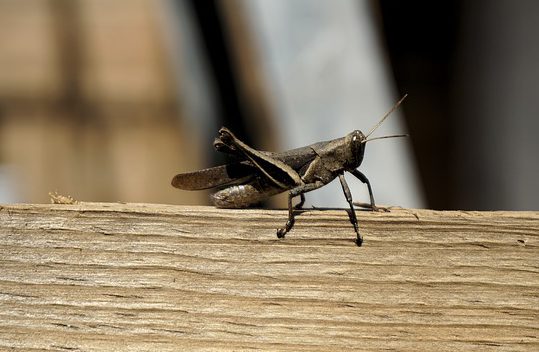January 26, 2018
Ontario-based Dane Creek Capital Corp. (DCCC), a pet investment-focused merchant banking venture, announced it has completed its third round of funding for Midgard Insect Farm, raising its holding to 80 percent.
Founded in 2016 in Windsor, Nova Scotia, by Joy Hillier, a vet technician and graduate of Dalhousie University’s Agricultural College, Midgard began using crickets as an ingredient in a line of pet treats, meal mixers, and meal toppers for dogs and cats that are made from sustainable sources which DCCC sold under the brand name, Dockside. Since beginning operations, Midgard has gained a presence supplying wholesale cricket meal to the pet industry, and is now eyeing entry into the agriculture sector.
“We just think that as we explore opportunities some of the bigger opportunities are in the agriculture space,” Mark Warren, chairman and CEO of DCCC and hair of Midgard, told Feed Navigator. “A lot of experiments going on [examine] incorporating cricket meal into poultry feed.”
“At almost every turn we see an expanding universe of applications for the work that Joy and her team are achieving,” said Warren. “Our latest investment is further evidence of our support for her team’s work and the prospects for the future.”
The company sees alternative proteins including crickets and mealworms as key components to the future of the livestock feed sector. Additionally, it sees a mixture of molted shells and insect waste called “frass” as being a highly effective soil amendment and fertilizer, generating another cash flow channel for insects production, and particularly for crickets which are high in chitin, a component of insect shells, in the agriculture industry.
All the Buzz
Although still far from being mainstream in Western cultures, the numerous benefits of sourcing protein from insects – and the EU Commission’s approval of insect-derived protein for inclusion in aquaculture feed rations on December 13, 2016 – has prompted a range of startups in the space and has sparked interest in the investment universe.
Between 2011 and 2015, the use of edible insects has grown at a compounded annual growth rate (CAGR) of more than 58 percent, according to Innova Market Insights.
“Millennials want to create a more sustainable world, to make it a better place for all of us, and they are willing to add insect flour to their food to help achieve this goal,” noted Eron Gronich, co-founder and CEO of Flying SpArk, an Israel-based producer of insect protein for human consumption derived from the Mediterranean fruit fly, which has been selected as one of 10 startups for IKEA’s inaugural accelerator, IKEA Bootcamp.
This growing acceptance has been reflected in the number of recent investment deals and the larger capital rounds being announced.
In June of last year Dutch biotech startup, Protix, which breeds insects for sustainable animal feed production, raised €45 million (just under US$50.5 million) through a round including Aqua-Spark, Rabobank, BOM, and additional unnamed investors.
Earlier in the year in March, Hexafly, an Irish biotech startup founded by three 26-year-old university friends – Alvan Hunt, John Lynam, and Patrick McGarvey – that has developed a scalable method of insect breeding, secured a second round of funding totaling €1 million (US$1.07 million) to scale up their insect farming operation.
In January 2017, NextProtein, a Paris and Tunis-based producer of animal feed components and biological fertilizer from insect larvae, raised €1.3M in a funding round featuring Kima Ventures, along with angel investors – Jerome Lecat, Khaled Helioui, (who also backed Uber and Deliveroo), Sylvie Ganter, Christophe Cervasel, and participants from the Anaxago financing platform and AngelSquare.
2016 saw Ynsect, a Paris-based mass-scale breeder and producer of insects for the livestock, pet, and fish feed markets, raise $15.2 million through a Series B led by Future Positive Capital, Quadia SA and Bpifrance Ecotechnologies and including existing investors, Emertec, Demeter, Vis Vires New Protein Capital and Business Angels. It also saw Intrexon Corp. announce that it had entered into a joint venture agreement with Darling Ingredients, the largest publicly traded developer and producer of sustainable natural ingredients in the world, for the industrial-scale production of non-pathogenic black soldier fly (BSF) larvae for use as a protein source in animal feed.
-Lynda Kiernan

Let GAI News inform your engagement in the agriculture sector.
GAI News provides crucial and timely news and insight to help you stay ahead of critical agricultural trends through free delivery of two weekly newsletters, Ag Investing Weekly and AgTech Intel.




